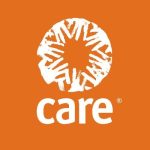Job Description
Terms of Reference (ToR) for documenting historical and current Rangeland management practices to support the enforcement of customary laws, rangeland status monitoring and management plans.
Rangeland Management Practices in Somalia, South West State (Wajid, Elbarde and Baidoa
1- Context Background
Somalia’s rural households primarily depend on subsistence farming and livestock rearing for their livelihoods. However, these traditional practices are under increasing strain due to a combination of environmental, economic, and systemic challenges that threaten household food security and economic stability. Understanding and addressing these challenges is crucial to improving resilience and fostering sustainable livelihoods in the country.
The climate in Somalia is characterized by extreme variability, resulting in frequent droughts, floods, and pest infestations. These shocks disrupt agricultural production cycles, destroy crops and livestock, and erode household assets, leading to widespread food insecurity and malnutrition, particularly among vulnerable groups such as children and women. Smallholder farmers face significant challenges in utilizing their limited land resources efficiently, often struggling to balance land allocation between subsistence crops and cash crops, resulting in suboptimal agricultural yields and limited economic returns.
Furthermore, Somalia faces significant challenges in natural resource management, primarily due to decades of conflict, climate change, and poor governance. Frequent droughts and floods exacerbate land degradation and water scarcity, while practices such as overgrazing and deforestation contribute to further degradation. Soil erosion reduces soil fertility and productivity, leading to decreased agricultural yields. The ongoing conflict and instability hinder natural resource management activities and displace communities, while competition over scarce resources leads to increased conflict.
The impacts of climate change continue to devastate the region, with severe and prolonged droughts further degrading the environment. The lack of functional traditional institutions and inadequate enforcement of customary laws, combined with the expansion of settlements in grazing land, has disintegrated the social fabric of pastoral communities.
2- Introduction of the Assignment
Rangeland management in Somalia, particularly in Southwest State, is vital for the livelihoods of pastoralists and agro-pastoralists, as well as for ecological sustainability. Effective management practices are essential for supporting local customs and enforcing community bylaws. In light of these challenges, AART project is seeking a qualified consultant to thoroughly document the historical and customary laws that have governed the management of rangelands and natural resources in the South West State of Somalia.
This consultancy aims to assess current rangeland management practices and document historical practices in AART project target locations in Southwest State (SWS), Somalia. The consultant will conduct a comprehensive assessment of the status of rangeland management practices, evaluating their effectiveness and identifying any gaps or challenges faced by land managers. Additionally, the documentation should include an analysis of how these historical laws have aligned with existing government policies over time.
As part of the assignment, the consultant will facilitate workshops and interviews with local communities, authorities, and stakeholders in AART locations. The consultant will also be required to map out and review existing policies that govern the management and use of rangelands, providing insights into their impact and effectiveness. The final deliverable should serve as a valuable resource for stakeholders interested in the sustainable management of natural resources and rangelands.
During this assignment the consultant will provide the key considerations on these points
1- Gender Dynamics: Ensure inclusive in recommendations.
2- Use of Existing Data: Build on previous research to avoid duplication.
3- Sustainability and Resilience: Align recommendations with ecological sustainability.
4- Clear Outputs: Provide practical recommendations for stakeholders.
5- Management of the Consultancy and Reporting
6- The consultant will report to the Technical Advisor for AART and will have regular consultation meetings with the AART team.
3- Objectives of the Assignment
Ø Document historical/customary laws governing rangeland management and their alignment with government policies.
Ø Map existing policies and institutions in Somalia.
Ø Assess the current status of rangeland management practices in Southwest State.
Ø Evaluate the effectiveness of customary laws in rangeland management.
Ø Support or develop rangeland management plans in the target locations.
4- Scope of Work (SOW)
The consultant will undertake the following tasks:
Ø Analyze existing documents, reports, and studies on rangeland management in Somalia and Southwest State.
Ø Conduct field visits to gather data on current rangeland conditions, management practices, and enforcement of community bylaws.
Ø Facilitate workshops and interviews with local communities, authorities, and stakeholders in AART locations.
Ø Compile a comprehensive report detailing findings, including historical and current practices and rangeland conditions.
Ø Develop a rangeland status monitoring framework, including indicators and data collection methods.
Ø Provide actionable recommendations for sustainable rangeland management practices.
5- Deliverables
ü A detailed report documenting historical and current rangeland management practices.
ü An analysis of the enforcement of customary laws related to rangeland management.
ü A rangeland status monitoring plan with clear indicators and methodologies.
ü A management plan that includes recommendations for sustainable rangeland practices.
ü Presentation of findings and recommendations to stakeholders.
6- Research Methodology
The consultant should use a participatory approach and mixed-methods design, including:
ü Literature Review: Review existing studies and secondary data.
ü Quantitative Surveys: Conduct structured surveys to assess customary laws.
ü Qualitative Data Collection: Use community-based guided participatory mapping and focus group discussions.
ü Key Informant Interviews (KII): Conduct in-depth interviews with key stakeholders.
ü Gender and Social Inclusion Analysis: Assess gender dynamics affecting accessibility and decision-making.
7- Sampling Strategy
The consultant should deploy purposive two stage sampling of: Purposively select villages based on NRM interventions. And random sampling to select households within communities.
Key Authority and Responsibilities and
CARE’s responsibilities
1- AART Technical Team and Partners will:
2- Ensure adherence to research ethics and quality assurance.
3- Provide necessary documents and arrange key informant interviews.
4- Review and approve operational approaches and final reports.
Consultant’s Responsibilities
The consultant will submit the following:
1. An inception report detailing the research methodology and work plan.
2. Draft data collection tools and field visit plans.
3. Technical support for enumerator training.
4. Comprehensive analysis of quantitative and qualitative data.
5. Draft and final reports in Word and PDF formats.
6. Infographic policy brief for stakeholder dissemination.
7. PowerPoint presentation of results.
8- TOR Schedule/Timeline
The Consultant must submit a timeline of activities as part of its proposals
The expected timeframe of the TOR assessment is 20 working days.
Skills and qualifications
1- Professional Experience/ requirements
– Advanced degree in rangeland management, ecology, environmental science, or a related field.
– Proven experience in rangeland management and community engagement in Somalia.
– Familiarity with community bylaws and local governance structures.
– Strong analytical and report-writing skills.
2- Budget
The consultant should provide a detailed budget, including fees, travel expenses, enumerators cost and any other associated costs. The consultant is responsible for all costs related to travel expenses, enumerators cost and any other associated costs
How to apply
· The TOR deadline for submission is 26-02-2025
· The submission should be emailed to: som.consultant@care.org
· Questions about TOR should be sent to Mohamed.tahir@care.org
……………………………………..
JOIN OUR SOCIAL MEDIA PLATFORMS
LINKEDIN : https://www.linkedin.com/company/86580313/admin/
TELEGRAM : https://t.me/realjobgater
FACEBOOK : https://www.facebook.com/profile.php?id=100091751887225
TIKTOK : https://www.tiktok.com/@jobgater





